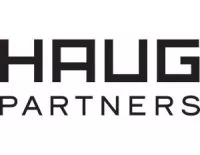On May 30, 2017, in Impression Products, Inc. v. Lexmark International, Inc., the Supreme Court issued an opinion overturning two long-standing Federal Circuit rules regarding the patent-exhaustion doctrine. First, the Court held that a patentee's sale of a product inside the United States terminates all patent rights to that product, regardless of any post-sale restrictions that a patentee imposes. Second, the Court held that patent exhaustion is triggered by an authorized sale of a product even when that authorized sale occurs outside the United States.
The respondent in this case was Lexmark International, Inc. ("Lexmark"), who designs, manufactures, and sells toner cartridges to consumers in the United States and abroad. As relevant here, Lexmark sells certain cartridges subject to contractual restrictions that prohibit the buyer from: (i) using the cartridge more than once, and (ii) transferring the used cartridge to anyone but Lexmark. The petitioner, Impression Products, Inc. ("Impression"), acquires empty toner cartridges from both domestic and international sources, refills them with toner, and then resells them.
In its suit, Lexmark alleged two separate groups of infringing actions committed by Impression. First, with respect to Lexmark cartridges originally sold in the U.S. and subject to Lexmark's reuse and resale contractual limitations, Lexmark argues that Impression infringed its patent rights by purchasing and reselling cartridges in the U.S. Second, with respect to Lexmark cartridges originally sold outside the U.S., Lexmark argues that it never authorized Impression's purchase and importation of the items for resale in the U.S., and that such importation also constitutes patent infringement.
The Supreme Court's decision centered around the need to keep patent exhaustion law "uniform and automatic," so that it is consistent with both historical and modern interpretations of the doctrine. In particular, with respect to whether a party can contractually limit a purchaser's right to use or resell an item, the Court cited to case law spanning the 160-year history of the patent-exhaustion doctrine, including a 1853 patent case and a 2013 copyright case, both of which demonstrate that once a patentee or a copyright owner sells an item, the item is no longer within the protection of the patent or copyright laws. Although a post-sale restriction could potentially be enforceable under contract law, the Court concluded that enforcing such a restriction under patent law would be an unlawful restraint on alienation under common-law principles because the limitation would bind all of the public, rather than just the parties to the contract. The Supreme Court therefore rejected the Federal Circuit's conclusion that an item's sale only "presumptively" grants authority "for the purchaser to use it and resell it." Instead, the Court concluded that once an authorized sale of an item has occurred, patent law confers no more exclusionary rights in that item.
With respect to international exhaustion, the Court discussed its recent decision in Kirtsaeng v. John Wiley & Sons, Inc., 568 U.S. 519 (2013), which dealt with the same importation issue in the copyright context. The Court states that patent exhaustion "is just as straightforward" as copyright law's first-sale doctrine with respect to foreign sales. Both patent and copyright law were found to exhibit an "antipathy toward restraints on alienation," and the Court therefore concluded that "nothing in the Patent Act shows that Congress intended to confine the [patent-exhaustion] principle to domestic sales."
Moving forward, Impression marks a similar shift in patent-exhaustion law that Kirtsaeng did in the copyright context, reaffirming the Supreme Court's view that a patent or copyright holder's rights should generally end at the point of a product's original sale, regardless of whether the sale occurs in the U.S. or abroad.
The content of this article is intended to provide a general guide to the subject matter. Specialist advice should be sought about your specific circumstances.



